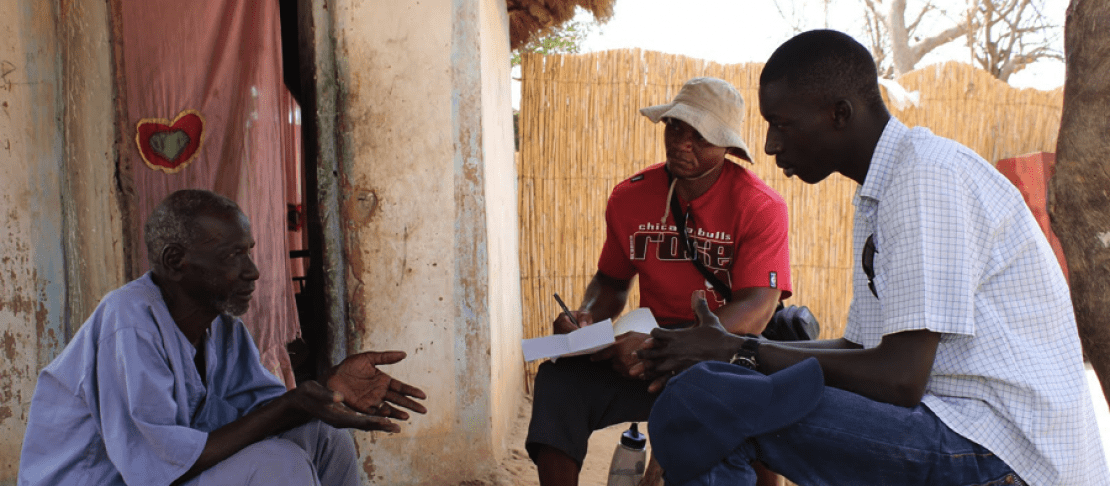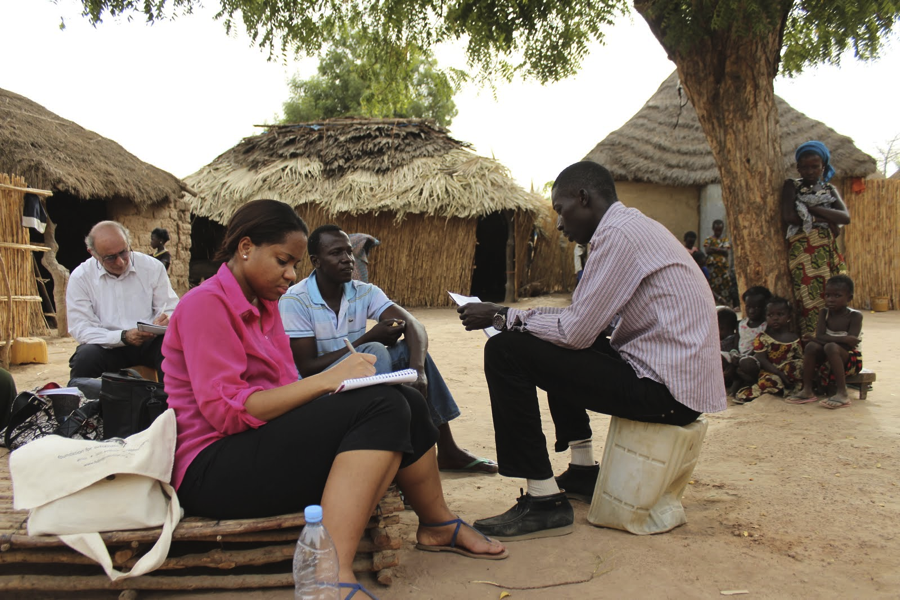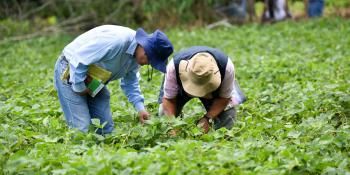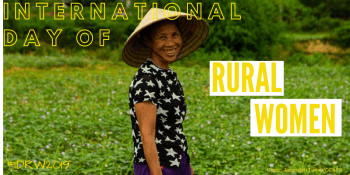Developing a methodology to evaluate climate-services for farmers

A workshop held in May aimed to create a monitoring and evaluation methodology related to climate-information services for small-scale farmers. This blog showcases some of the meeting highlights and presents the finalized Workshop report.
We have worked intensively with the Senegal Meteorological Service since 2011 to provide improved seasonal forecast information to small-scale farmers. Our aim is to better inform their decisions related to planting and harvesting. The project may be just two years old, but we are already making efforts to make sure others understand the impacts it has had on local communities and how they can be improved.
A gathering of experts
With this in mind a dozen experts from around the world gathered in Kaffrine in May, to help devise a methodology that will help evaluate the potential impacts agro-meteorological information might have on the livelihoods of farmers there. Evaluating how climate information is able to improve the lives and livelihoods of users is an important step in understanding the extent to which climate services are able to achieve their stated goals and helps to guide future investment.
Organized by USAID, the CGIAR Research Program on Climate Change, Agriculture and Food Security (CCAFS), and International Crops Research Center for the Semi-Arid Tropics (ICRISAT), the 'Developing a methodology to evaluate climate services for farmers in Africa and South Asia workshop' helped to advance the heightened global conversation on ‘climate service evaluation’. The meeting was hosted in conjunction with the Senegalese Meteorological Service.
Find our more about our work on climate information services in Senegal.
This global conversation has gathered steam in recently years - particularly after the launch of the newly minted Global Framework for Climate Services. This framework helps increase the recognition of how important it is to evaluate the use of climate information during decision-making.
Context is crucial, but so to is scalability
Experts from various directions, climate science, agricultural research and impact assessment traveled to Kaffrine to join the meeting. Their ambition was to help develop a monitoring and evaluation methodology suited for the workshop-objective: finding a methodology that is both context-specific and scalable, while ensuring that it is based on a gender-responsive quantitative methodology.
The process involved several days of discussion, followed by field-testing where farmers were invited to help scientists understand how best to measure success.

WOrkshop participants talking to farmers in Kaffrine, Senegal.
The meeting underscored the extent to which evaluators must understand the decision-making context in which climate information is or is not used, and the connections between information use and specific outputs, outcomes, and impacts.
Taking time to refine the methodology
Moving forward, workshop participants will continue to work with CCAFS and the Senegalese Meteorological Service to hone the methodology over the coming months, and to test it out with farmers’ help in different parts of Kaffrine.
Ultimately, the project will improve our collective understanding of the impact of this particular project, and shed new light on climate service evaluation at large to help us understand the impact of other projects in the future.
Learn more by reading the official Workshop report as it provides more details on key aspects of climate services evaluation: Developing a methodology to evaluate climate services for farmers in Africa and South Asia workshop report, by Arame Tall and Joyce-Lynn Njinga 2013.
Arame Tall is a climate-services researcher at CCAFS. Catherine Vaughan works as Staff Associate, International Research Institute for Climate and Society at Climate Services Partnership.



